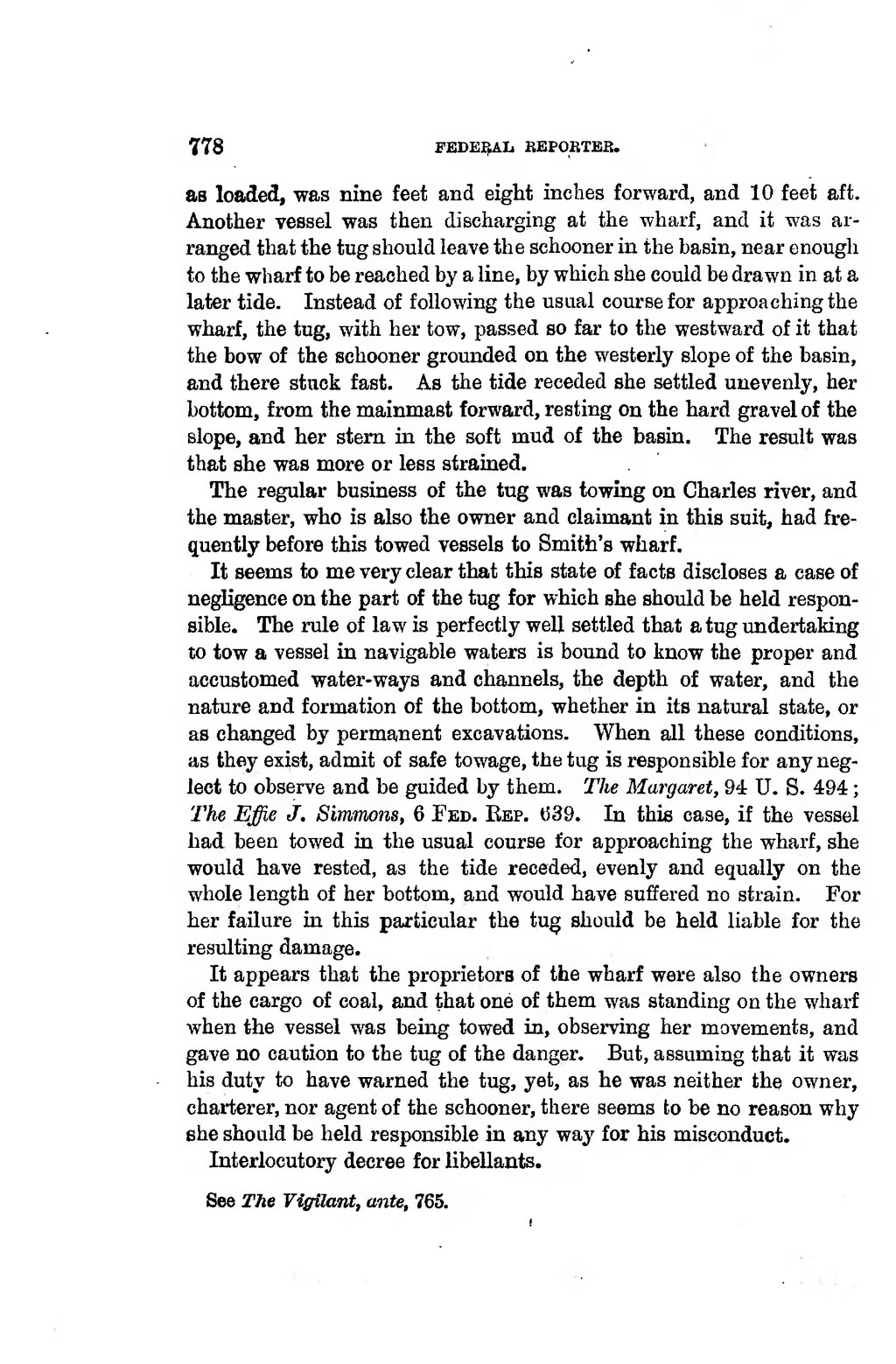as loaded, was nine feet and eight inches forward, and 10 feet aft. Another vessel was then discharging at the wharf, and it was arranged that the tug should leave the schooner in the basin, near enough to the wharf to be reached by a line, by which she could be drawn in at a later tide. Instead of following the usual course for approaching the wharf, the tug, with her tow, passed so far to the westward of it that the bow of the schooner grounded on the westerly slope of the basin, and there stuck fast. As the tide receded she settled unevenly, her bottom, from the mainmast forward, resting on the hard gravel of the slope, and her stern in the soft mud of the basin. The result was that she was more or less strained.
The regular business of the tug was towing on Charles river, and the master, who is also the owner and claimant in this suit, had frequently before this towed vessels to Smith's wharf.
It seems to me very clear that this state of facts discloses a case of negligence on the part of the tug for which she should be held responsible. The rule of law is perfectly well settled that a tug undertaking to tow a vessel in navigable waters is bound to know the proper and accustomed water-ways and channels, the depth of water, and the nature and formation of the bottom, whether in its natural state, or as changed by permanent excavations. When all these conditions, as they exist, admit of safe towage, the tug is responsible for any neglect to observe and be guided by them. The Margaret, 94 U. S. 494; The Effie J. Simmons, 6 Fed. Rep. 639. In this case, if the vessel had been towed in the usual course for approaching the wharf, she would have rested, as the tide receded, evenly and equally on the whole length of her bottom, and would have suffered no strain. For her failure in this particular the tug should be held liable for the resulting damage.
It appears that the proprietors of the wharf were also the owners of the cargo of coal, and that one of them was standing on the wharf when the vessel was being towed in, observing her movements, and gave no caution to the tug of the danger. But, assuming that it was his duty to have warned the tug, yet, as he was neither the owner, charterer, nor agent of the schooner, there seems to be no reason why she should be held responsible in any way for his misconduct.
Interlocutory decree for libellants.
See The Vigilant, ante, 765.
